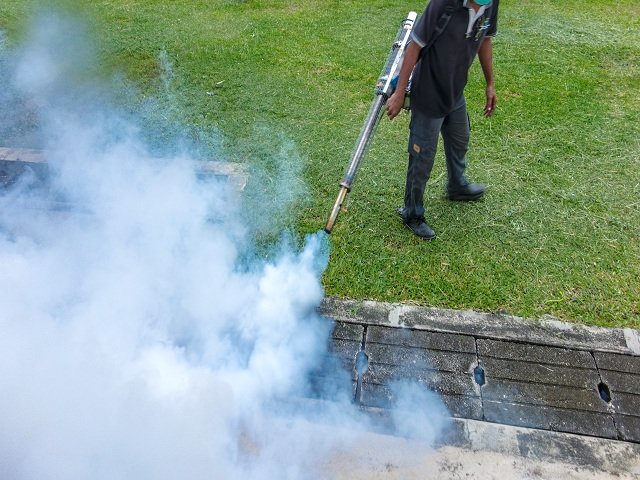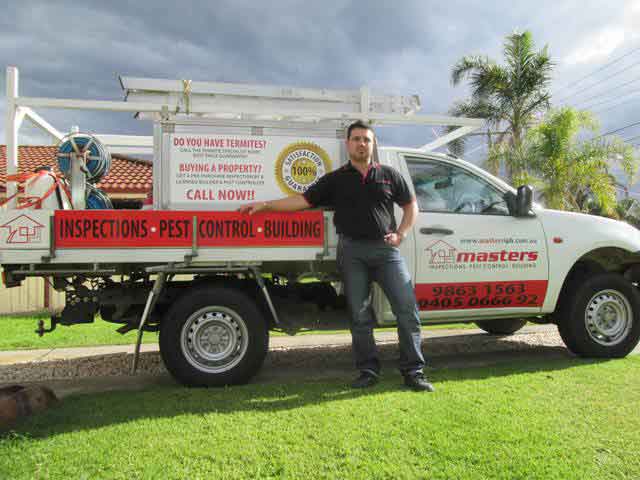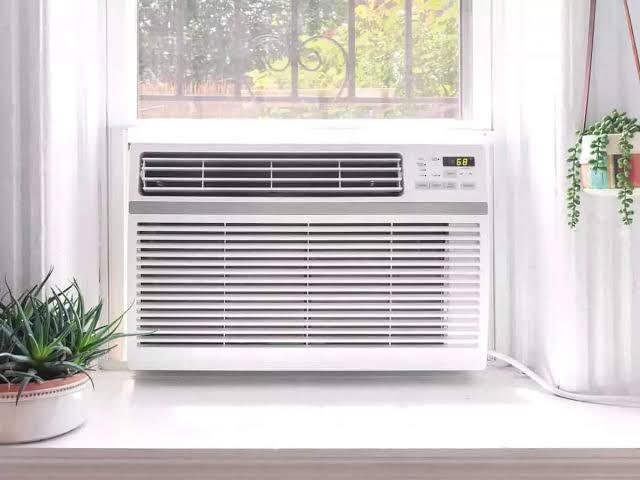When you think of pests, you might picture annoying insects or rodents that invade your home and disrupt your peace. While the nuisance factor is undeniable, pests can have more significant consequences than just being a bother. They can pose significant health risks to you and your family. In this blog post, we’ll explore the impact of pests on your well-being and discuss why effective pest control is essential for maintaining a healthy living environment.
The Hidden Health Hazards of Pests
Pests come in various forms, from common insects like mosquitoes and ants to rodents such as mice and rats. Each type of pest can bring its own set of health risks, and it’s crucial to understand how these intruders can affect your well-being.
1. Allergies and Respiratory Issues:
Many pests, including dust mites, cockroaches, and rodents, produce allergenic proteins and shed skin or feces that can trigger allergies and exacerbate respiratory conditions. For individuals with asthma or allergies, exposure to these allergens can lead to wheezing, coughing, sneezing, and even asthma attacks.
2. Vector-Borne Diseases:
Certain pests act as vectors for diseases, meaning they can transmit pathogens to humans. For example:
- Mosquitoes: These insects can carry viruses like West Nile virus, Zika virus, and various strains of encephalitis. Mosquito bites can transmit these diseases to humans, potentially leading to severe illness or long-term health consequences.
- Ticks: Ticks are responsible for transmitting Lyme disease and other tick-borne illnesses. Early detection and removal of ticks are crucial to prevent infection.
3. Contaminated Food and Water:
Pests like flies, ants, and rodents can contaminate your food and water sources by landing on them, crawling over them, or leaving behind feces and urine. Consuming contaminated food or water can result in foodborne illnesses, including salmonella and E. coli infections.
4. Structural Damage:
Pests like termites and carpenter ants can cause significant structural damage to your home. A weakened structure can create opportunities for mold growth, which can lead to respiratory issues and other health problems.
5. Bites and Stings:
Certain pests, such as bedbugs, fleas, and stinging insects like bees and wasps, can inflict painful bites or stings. These can cause localized reactions, allergic reactions, or secondary infections if not properly treated.

Common Pests and Their Health Implications
Let’s take a closer look at some common pests and the health risks they pose:
1. Cockroaches:
Cockroaches are known allergen producers. Their saliva, feces, and shed skin contain proteins that can trigger asthma and allergic reactions, particularly in children. Cockroaches can also carry pathogens like Salmonella, which can lead to food poisoning.
2. Rodents (Mice and Rats):
Rodents are carriers of various diseases, including Hantavirus, Leptospirosis, and Salmonella. They can contaminate your food and water and leave droppings that release allergenic particles into the air.
3. Mosquitoes:
Mosquitoes are infamous for transmitting diseases such as malaria, dengue fever, and Zika virus. Their bites can be itchy and uncomfortable, and in some cases, they can lead to severe illnesses or even death.
4. Ticks:
Ticks can transmit Lyme disease, Rocky Mountain spotted fever, and other tick-borne illnesses. Prompt removal of ticks is essential to reduce the risk of infection.
5. Bedbugs:
Bedbugs are known for their itchy bites, which can lead to discomfort and secondary infections if scratched. While they do not transmit diseases, their presence can have significant psychological and emotional effects on individuals.
Preventing Pest-Related Health Issues
The key to mitigating the health risks associated with pests is effective pest control and prevention. Here are some strategies to help you maintain a pest-free and healthy living environment:
1. Keep Your Home Clean:
Regularly clean your home, including floors, countertops, and storage areas. Eliminate crumbs, spills, and food residue that can attract pests. Vacuum carpets and upholstery to remove allergenic particles.
2. Seal Entry Points:
Inspect your home for gaps, cracks, and openings that pests can use to enter. Seal these entry points with caulk, weatherstripping, or other appropriate materials.
3. Proper Food Storage:
Store food items in airtight containers and keep your pantry and kitchen clean. Dispose of trash regularly, and use trash cans with secure lids to deter pests.
4. Eliminate Standing Water:
Mosquitoes breed in standing water, so empty any containers, gutters, or pools of water around your property. Fix any leaks or drainage issues to prevent water buildup.
5. Trim Vegetation:
Keep vegetation, shrubs, and trees near your home well-trimmed. Overgrown vegetation can provide hiding places for pests and allow them easy access to your home.
6. Regular Inspections:
Conduct regular inspections of your home and property to identify any signs of pests or damage. Early detection can prevent infestations from becoming severe.
7. Professional Pest Control:
Consider hiring a professional pest control service to conduct regular inspections and treatments. Professionals have the knowledge and tools to address pest issues effectively and safely.
8. Educate Yourself:
Learn about the common pests in your area and the signs of infestations. Being aware of potential problems can help you take preventive measures.
When to Seek Professional Help
While DIY pest control methods can be effective for prevention and minor infestations, some situations require professional intervention. Here are some signs that you should contact a pest control expert:
- Severe Infestations: If you have a large or widespread infestation that you cannot manage on your own, it’s time to call in professionals.
- Persistent Pests: Some pests, like bedbugs, can be particularly challenging to eradicate without professional assistance.
- Safety Concerns: If the methods you’re using involve potentially hazardous chemicals or techniques, it’s best to leave the job to trained experts who can ensure the safety of you and your family.
- Recurrent Infestations: If you’re experiencing recurrent pest problems, a professional can identify and address the root causes to prevent future infestations.
- Pest-Related Health Issues: If you or a family member are experiencing health issues related to pests, such as severe allergies or respiratory problems, consult a healthcare professional and a pest control expert.
Conclusion
Pest control is not just about maintaining a pest-free home; it’s about safeguarding your health and well-being. Pests can pose serious health risks, from allergens that trigger respiratory issues to diseases transmitted through bites and contaminated food. By practicing effective pest prevention and promptly addressing infestations, you can create a safer and healthier living environment for you and your family. Regular inspections, cleanliness, and, when necessary, professional pest control services from EPM/ Bugtech are essential steps in ensuring your home remains a haven of health and comfort.





